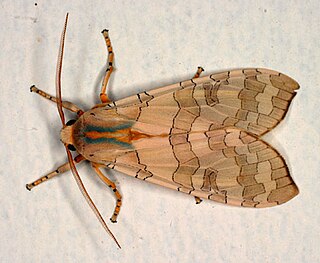
The Phaegopterina are a subtribe of tiger moths in the tribe Arctiini, which is part of the family Erebidae. The subtribe was described by William Forsell Kirby in 1892. 469 species of Phaegopterina are present and 52 that are recently discovered in Brazil.

Lophocampa is a genus of moths in the family Erebidae. The genus was erected by Thaddeus William Harris in 1841. It contains around 75 species.

Lophocampa argentata, the silver-spotted tiger moth, is a species of moth in the family Erebidae. It was described by Packard in 1864. It is found from British Columbia to southern California, and east to Arizona, Nevada, New Mexico, Colorado, Utah, Wyoming and possibly to northern Mexico.
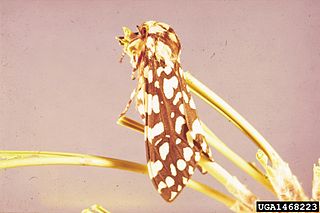
Lophocampa ingens is a moth of the family Erebidae. It was described by Henry Edwards in 1881. It is found in the southern Rocky Mountains and in Mexico.
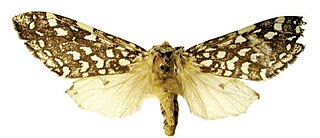
Lophocampa albiguttata is a moth of the family Erebidae. It was described by Jean Baptiste Boisduval in 1870. It is known from Honduras and possibly Mexico.
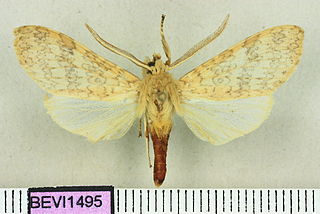
Lophocampa secunda is a moth of the family Erebidae. It was described by Walter Rothschild in 1909 under the name fasciata. It is found in Brazil and on Cuba.

Lophocampa affinis is a moth of the family Erebidae. It was described by Walter Rothschild in 1909. It is found in Mexico.

Lophocampa alsus is a moth of the family Erebidae. It was described by Pieter Cramer in 1777. It is found in Suriname and possibly Colombia and Venezuela.

Lophocampa annulosa, the Santa Ana tussock moth, is a moth of the family Erebidae. It was described by Francis Walker in 1855. It is found in the south-western US, Mexico, Costa Rica, Ecuador, Venezuela, Peru, Suriname, Brazil, Argentina and Trinidad.
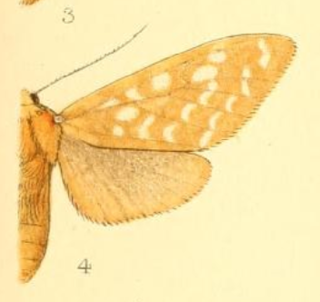
Lophocampa bicolor is a moth of the family Erebidae. It was described by Francis Walker in 1855. It is found in Mexico and Big Bend National Park, Texas.
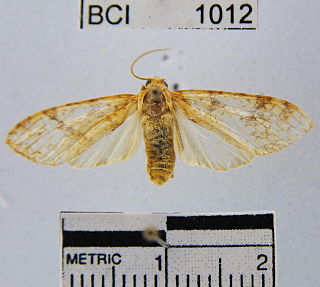
Lophocampa catenulata is a moth of the family Erebidae. It was described by Jacob Hübner in 1812. It is found on Cuba and in Mexico, Costa Rica, Guatemala, Panama, Venezuela, Suriname, French Guiana, Brazil, Peru and Argentina.
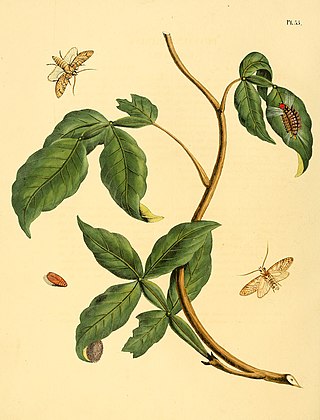
Lophocampa citrina is a moth of the family Erebidae. It was described by Jan Sepp in 1843 as Phalaena citrina. It is found in Mexico, Honduras, Panama, French Guiana, Brazil, Venezuela and the Amazon region.
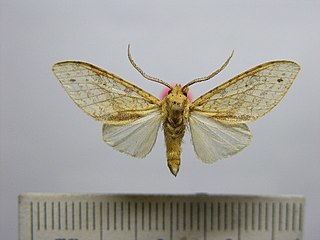
Lophocampa debilis is a moth of the family Erebidae. It was described by William Schaus in 1920. It is found in Mexico, Costa Rica and Guatemala.

Lophocampa endolobata is a moth of the family Erebidae. It was described by George Hampson in 1901. It is found in Brazil.
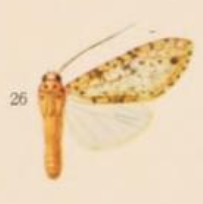
Lophocampa endrolepia is a moth of the family Erebidae. It was described by Paul Dognin in 1908. It is found in Ecuador.
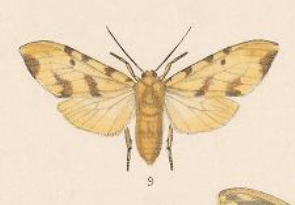
Lophocampa labaca is a moth of the family Erebidae. It was described by Herbert Druce in 1890. It is found in Jalisco, Mexico.
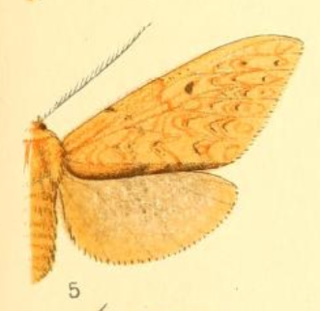
Lophocampa margona is a moth of the family Erebidae. It was described by William Schaus in 1896. It is found in Mexico.
Lophocampa nimbifacta is a moth of the family Erebidae. It was described by Harrison Gray Dyar Jr. in 1912. It is found in Mexico.
Lophocampa pectina is a moth of the family Erebidae. It was described by William Schaus in 1896. It is found in Mexico.
Lophocampa significans is a moth of the subfamily Arctiinae. It was described by Henry Edwards in 1888. It is found in the United States in New Mexico, Arizona, Colorado, Kansas, Utah and Wyoming.
















